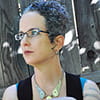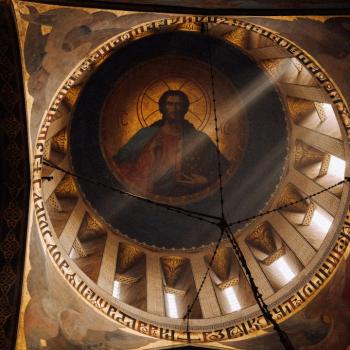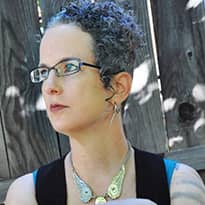 This is an article that I was avoiding writing, but I have been asked to speak, and have chosen to acquiesce. For those who want some background on the Feri Tradition, I refer you to this excellent article.
This is an article that I was avoiding writing, but I have been asked to speak, and have chosen to acquiesce. For those who want some background on the Feri Tradition, I refer you to this excellent article.
Feri is a relatively small American Pagan tradition that has fostered such public figures as Gwydion Pendderwen, Starhawk, Francesca de Grandis, Sharon Knight, Anaar, Anne Hill, Vicki Burns—and numerous other dancers, poets, singers, authors, teachers, herbalists, and ritualists—all doing their own work in the world. I am pleased to count myself among them.
It is said of late that the Feri Tradition has been broken in two, being named by folks on one side of the divide as a split between the "Mystery tradition" (taking on the old spelling of Faery) and "public religion" (Feri). While there have been splits and factions for almost as long as the tradition has been active, while the spelling of the name changed over time, and scapegoating, shouting, and long silences have abounded, I never before felt such an energetic sundering. As I write this, I can feel the mighty gates closing on what was. What will emerge, I do not know. Perhaps nothing will change, and perhaps everything will. Such are the times we live in, and various are the pronouncements of our egos trying to figure things out.
In 2009, I wrote my ongoing students a letter telling them that I would no longer be teaching within the Feri Tradition. As part of that letter I said:
My work can no longer be held in even so porous, forgiving, and strong a container as Feri is. My roots remain in Feri, but they are also in Gurdjieff and Sufism. My influences are of the Craft, but they are also of Kabbalah, Buddhism, Hinduism, Thelema, and mysticism of all traditions. My primary influences are of course the changes in my own heart and soul from practice, my guides, my God Soul, and LVX.
At what point in an ecstatic, syncretic, Bardic tradition, does one's own work cease to be of that tradition? My first book, Evolutionary Witchcraft, about my studies and teaching in the Feri Tradition, was already heavily influenced by Gurdjieff, Sufism, and mysticism. As a matter of fact, these other systems gave me the lens on Victor and Cora Anderson's work that caused me to see ever more deeply into it. So why did I stop teaching Feri?
The answer is multivalent, of course, and we likely will understand the whole thing better ten or twenty years from now. There were, however, two main reasons. One was that working within a small container of initiates and within the container of a set tradition was causing me some discomfort; my work is ever evolving in its expression, though I feel the core of my work will always remain the same, centering on evolutionary practices of alignment and self-possession, true to my deep self and true even to the teachings of Victor and Cora. Yet it is also infused with the theory and practices set forth by G. I. Gurdjieff, and the whirling dance and poetry of Jalalludin Rumi, not to mention the mystic seeking of my childhood Catholic soul, and the strident calling of Thelema. My work needed to be free from some measure of "is this Feri or not?" in order to open the old into the new.
The second reason is that, as a public teacher of Feri, I felt I had stretched the tradition as far as was possible at the time. This was causing some of my brothers and sisters pain. Yet to not do my work, to curtail my vision and guidance because of their discomfort, would have been to deny the work of my God Soul, which is the spreading of light and liberation. So I decided it was cleaner to simply say: "I no longer teach Feri." This caused bewilderment to some, though I had tried to prepare my students, and helped many others to breathe a sigh of relief.
If I am honest, there was also a third reason: many people who had come to me for initial training were continuing. I had expected that most of them would fall away, would take a few foundational tools to better their lives, and then return to other practices, traditions, and ways of worship. Many did, which frankly is what I did early on in my Feri training. I worked with a teacher for a year or so, then left. It was only years later that I circled back. But here I was with many, many dedicated students, working very hard, and yet, were all of them right for the giant wallop that is Feri initiation? No. Could I possibly take each of them through the gates even if I wanted to? No. And yet, ostensibly, I was teaching within an initiatory tradition. No matter how much I told people that the initial two-year class did not lead to initiation, there was still, within some, an expectation. We can blame culture, we can blame tradition, we can blame assumptions, we can blame my lack of foresight. That conversation—like every point I will mention in this essay—would take hours to unpack.





